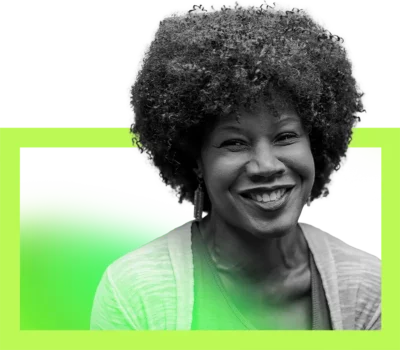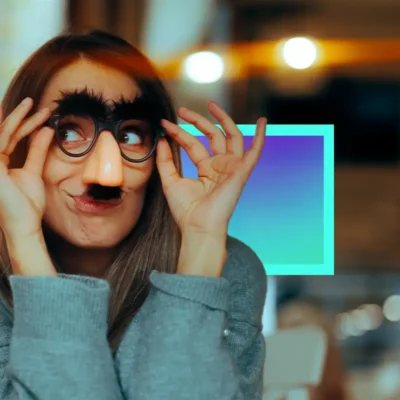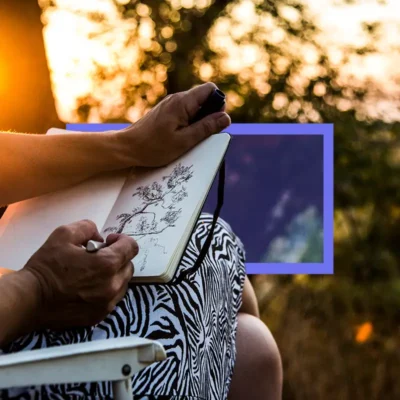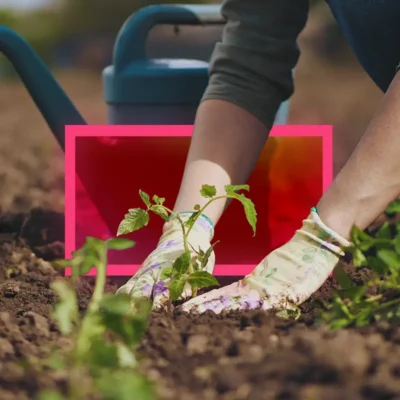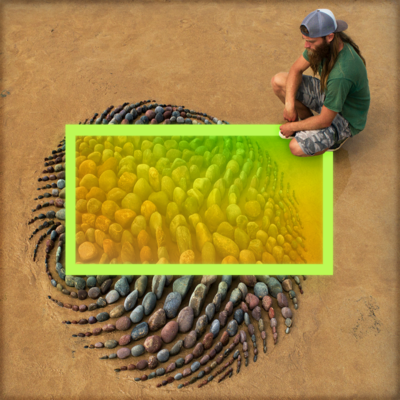Do great things – and take your flowers
As the youngest of 10 kids, Majora Carter is used to being a little bit invisible, shyly watching the world around her as she draws with her crayons. But her first-grade teacher, Ms. Transport, sees that she has a special talent for art. She encourages Majora to share her gifts – and (the real challenge) to accept praise. Her rallying cry: “You deserve to take your flowers!” Years later, as a grown woman, Majora realizes she can return the favor.
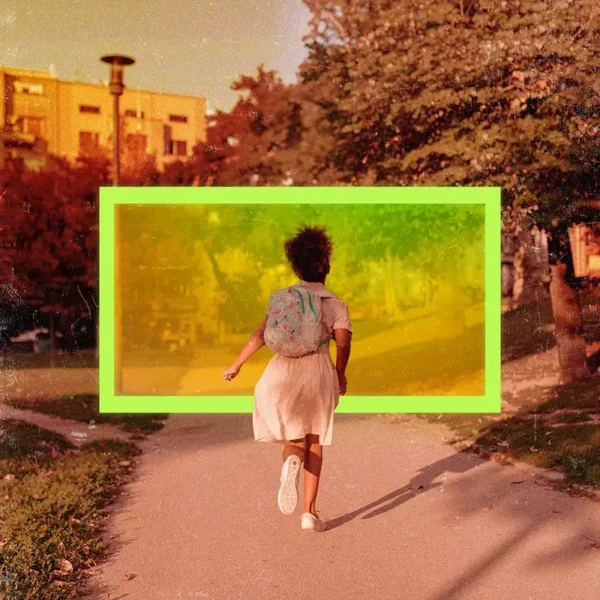
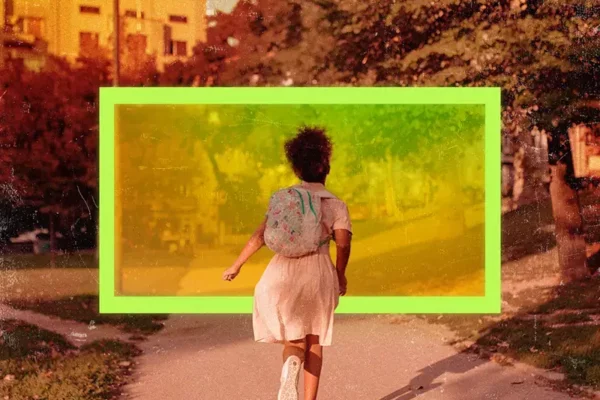
Table of Contents:
Transcript:
Do great things – and take your flowers
MAJORA CARTER: In my early 30s, I moved into a house across the street from where I grew up. My mother is now suffering from Alzheimers. Sometimes she’s lucid, and my same wonderful Mommy. Other times, she acts like I’m a stranger or hates me.
I’m not sure what to do with myself. So I sit on the floor in my barely furnished living room and open up old boxes of stuff that I carry over from Mommy’s. I don’t know what I’m looking for, exactly. Maybe some order, maybe a braver part of myself.
I pick out an opened envelope. The postmark shows it was addressed to me back when I was starting high school. I don’t remember reading it during the blur of my teenage years. Inside is a cream-colored card. Crane’s stationery, the kind of heavyweight, linen paper I love. It’s covered in graceful, sloping cursive spanning both sides of the card. I skip down to the end, and read the elegant signature: “Natalie Transport.”
She congratulates me for acceptance into the Bronx High School of Science. I read, “I know you’re destined for great things. I can’t wait to see what comes next for you.” I’m stunned to remember how much she believed in me.
Why is it still so hard for me to feel it about myself? How is it possible to do great things on the outside and yet still feel so much fear and self-doubt?
ROHAN GUNATILLAKE: Majora Carter has spent decades working to improve the environment and the economy of one of America’s most storied disadvantaged neighborhoods: her native South Bronx. She and her team at Majora Carter Group work on programs that generate and keep assets in the South Bronx community – and run the Boogie Down Grind coffeehouse in the neighborhood. Not many people are quoted on the walls of the Smithsonian’s Museum of African-American History and Culture, but there you can read Majora’s defining statement: “Nobody should have to move out of their neighborhood to live in a better one.”
In today’s Meditative Story, we meet the woman who altered the trajectory of young Majora’s life, teaching her that believing in yourself requires finding and listening to others who believe in you just as much.
In this series, we combine immersive first-person stories and breathtaking music with the science-backed benefits of mindfulness practice. From WaitWhat, this is Meditative Story. I’m Rohan, and I’ll be your guide.
The body relaxed. The body breathing. Your senses open. Your mind open. Meeting the world.
CARTER: It’s 1973. First grade for me. I am drawing furiously with crayons at my desk. Purple, yellow, green – paper’s peeling off them. I go to PS 48 in the South Bronx. The room always smells clean. A little bit like Clorox, and I kind of like that. My desk is in the front row because my last name starts with C. My freshly polished navy blue Buster Brown lace-up shoes barely touch the linoleum floor. I keep looking up to the front, to Ms. Transport’s wide wooden desk. I like to quietly watch her. She’s one of the only white ladies I know.
Today, Ms. Transport is wearing an ivory, high-collared, pin-tucked shirt, with a little ruffle, and this really cool plaid skirt. She always wears orange lipstick, her hair is poofy, light brown, curled out at the neck kind of like the advice columnist in the newspaper, Ann Landers. Her posture is perfect.
I try to sit up a little straighter as she walks by my desk. I’m putting the final touches on my free-drawing. I’m sketching Michael Jackson, because I’m all about the Jackson 5, especially Michael. I’m drawing him in three squares, each a different color, in the same pose, wearing his newsboy cap. I shade in the cheekbones and fleck the center of his eyes.
Ms. Transport stops when she sees my three colored portraits. Her eyes widen. I don’t know who Andy Warhol is, but she does.
“Majora, that’s amazing! How did you know how to do that?!”
I look up from my picture to find the whole class peering at me. My cheeks are on fire – surely Ms. Transport sees, but she keeps on talking.
“Oh Majora, I have to show this to the other teachers!”
She takes me by the hand, pulls me out of my chair, and brings me and my drawing to the teacher next door.
“Look at what Majora drew! Can you believe this?”
My hands fly up to my face, covering it up as if I can block out the praise with my palms. Through the little gaps in my fingers, I can just barely see my drawing sitting on the teacher’s desk.
She says, “Majora, listen to what’s being said about your work and you. Why are you hiding?”
In the cracks between my fingers, Ms. Transport’s face appears. She’s crouching down until we’re eye to eye. I can smell her smoky perfume.
Gently, she pulls my wrists down away from my face. “This is you!” she says. “You deserve to hear. You deserve to take your flowers!”
At home, I tuck myself into a corner under the bar my dad built in the basement as part of his version of a rec room, or I hide in my mom’s closet while my parents have friends over. And I can hear them laughing in the kitchen, all crowded together.
I’m the youngest of 10, a ginormous family. My oldest sibling is nearly 40 years older than I am. My father was 60 when I was born. Home is always loud and busy, and I feel even smaller than I am. My closest brother in age sometimes grabs my drawings and laughs at them, teasing me about being a nerd. I don’t like him. The rest of my family is outgoing, athletic, and good-looking. I can’t do the latest dance moves or throw a baseball gracefully. I’m always drawing or writing stories, but no one at home seems to care about that, other than my mom. I wonder what’s wrong with me, that makes me so different from everyone else.
Mommy’s clothes hang down around me in the closet. They smell like her favorite perfume, Estée Lauder Private Label. I keep the door opened just a crack, listening to everybody else have a good time. I never participate because I don’t think I can. It just feels uncomfortable. But I still want to hear them. I am good-time adjacent.
On parent teacher night, my mom is wearing my favorite coat of hers: it’s a crinkly, navy blue, shiny vinyl, with large blue and white buttons, and it swings around her legs. Very 1970s. Her shoes click on the floor as we find Classroom 1-1. Mommy carries a plastic container of fried chicken for Ms. Transport. And it smells good.
“Majora reads well beyond her age and is such a wonderful writer!” says Ms. Transport. Mommy beams and tells her how she encourages me to watch public TV. They look funny next to each other. My mother is the size of three of Ms. Transports.
I’m just sitting there, trying to be invisible but watching them. But I am not invisible. I feel like somebody finally sees me. They are getting on like a house on fire.
Looking up at the two of them is like looking at the two pillars that hold up the world.
GUNATILLAKE: Can you get a sense of the admiration and love that Majora feels in this moment as these two forces in her life connect? Enjoy any warmth, stability, or elevation you can notice yourself in this moment.
CARTER: In my early 30s, I move into a house across the street from where I grew up. My mother is now suffering from Alzheimers. Sometimes she’s lucid, and my same wonderful Mommy. Other times, she acts like I’m a stranger or hates me.
I’m not sure what to do with myself. So I sit on the floor in my barely furnished living room and open up old boxes of stuff that I carry over from Mommy’s.
I don’t know what I’m looking for, exactly. Maybe some order, maybe a braver part of myself.
I pick out an opened envelope. The postmark shows it was addressed to me back when I was starting high school. I don’t remember reading it during the blur of my teenage years. Inside is a cream-colored card. Crane’s stationery, the kind of heavy-weight, linen paper I love. It’s covered in graceful, sloping cursive spanning both sides of the card. I skip down to the end, and read the elegant signature: “Natalie Transport.”
She congratulates me for acceptance into the Bronx High School of Science. I read, “I know you’re destined for great things, I can’t wait to see what comes next for you.”
I’m stunned to remember how much she believed in me.
Why is it still so hard for me to feel it about myself? How is it possible to do great things on the outside and yet still feel so much fear and self-doubt?
Years before, I sit in a diner with a current boyfriend. Nervous. My heart is beating loudly as I share that I am receiving a special honor for being an environmental advocate. He looks me dead in the eye and says, “What did you do to deserve that?” And I think, maybe he’s right, maybe I really haven’t done anything. A part of me, the part connected to that little girl in the closet, still believes him.
And as I re-read her signature, I realize that overcoming this is not something that anyone can do alone.
A few months later, when Mommy passes away, I find myself reaching out to Ms. Transport. I write her a letter, telling her my sad news. And I drop in a business card from my organization, Sustainable South Bronx.
Not long after, the phone rings when I’m at work.
“Is this Majora?” says a woman. “It’s Natalie Transport.” Her voice still has that beautiful energy that I remember from 40 years ago. We talk about how great Mommy was, and she shares that her husband of 50 years recently passed away.
We talk for a long time. “You were just this incredible young lady who didn’t quite know what she had. I knew you would hide if I didn’t pull you out,” she says.
Wow, I think, she really got me, still gets me.
Later that summer, my fiancé, James, and I go to visit Ms. Transport. Now in her 80s, she still lives in the same apartment in the north Bronx, in Riverdale, where she lived when she was my teacher. I knock on a heavy metal door, and she opens it. She is so tiny.
“Ms. Transport, I always thought you were a giant!” I blurt out.
“Oh, stop!” she says, and reaches up to give me a hug.
Her apartment is like her: elegant with stylish flair. We drink from little sherry glasses and eat vegetable hors d’oeuvres. She talks about her life as a teacher, this tiny Jewish lady striding around the South Bronx back when it was a place that was literally on fire on a daily basis. The abandoned buildings, the broken glass as well as broken promises. No one wanted to walk those streets, but she did. She tells us about her family who fled the Holocaust. “We’ve all lived in the Bronx ever since,” she says. It turns out most of her family are educators, too.
And Ms. Transport gets lost in thought while sipping her sherry.
“Now there was this one girl, the most brilliant student I’ve ever had. The kind of brain she had was almost scary.”
I feel a sudden rush of jealousy that she was so impressed by someone other than me. Ms. Transport goes on.
“But whatever was happening in that girl’s family life, it was really bad. And then, one day, she was gone. That kind of thing, it happened all the time. But I think about that young lady a lot.”
Later that night, we exchange long, warm hugs, and I head home. But I keep thinking about the gifted girl who fell away. She haunts me for years after. That girl could have so easily been me. All of us growing up there, we had to deal with so much trauma. It was all so much bigger than we were.
Ms. Transport saw something in both of us. But I had my mom, and that girl didn’t.
That conversation still inspires me to create more hope and possibilities in communities like mine. On the surface, my work improves the built environment, but it’s really about the people. I reach them through business development, real estate, parks and green jobs, and I see the best way to do it – it’s the way Ms. Transport spent her whole career: by pouring love into the community. She told each of us to keep standing, because she saw the promise next to the pain.
I see it too, now more strongly than ever.
GUNATILLAKE: Keep standing. However your body is, even if lying or sitting down. Can your posture have the energy of standing? Standing firm yet flexible in the midst of it all.
CARTER: In 2008, I’m sitting on a stage facing an audience of 300. It’s a gala for the Women of Worth awards ceremony in a ballroom near Columbus Circle in New York City. The chandeliers are elegant, the room draped in sea-foam green fabric. The audience sits in a semi-circle around the stage. My mother isn’t alive to see me honored tonight, so I invited Ms. Transport. And I look out from the stage to find her in the crowd. As I scan my eyes to the back of the room, I see her. She looks amazing, as always, in a white top shimmering with sparkles and a broad gold necklace.
When it’s time for me to speak, I’m on a panel that includes Whoopi Goldberg. I feel that old urge to bury my face in my hands. I think, “What on earth am I doing up here with people like Whoopi Goldberg?” But I take a deep breath and keep going.
During the discussion I say: “I am here tonight in part because of someone who instilled in me the spirit that I could do anything, even when I wasn’t so sure. She showed me that believing in myself is not a solo act. My first grade teacher, Ms. Transport, would you please stand up?”
Ms. Transport clearly isn’t expecting this – her coat is still in her lap. Still, she stands smoothly, graciously. The audience applauds and coos.
After all those years, I get to be the one watching Ms. Transport take her flowers.
It’s a few days after Christmasm, and my husband and I are stuck in horrible traffic. He’s driving; I’m crying. I keep thinking, “What if I miss Ms. Transport’s funeral?!”
When we finally park at the Long Island cemetery, the air is cold and the landscape desolate. But we’re not too late. It seems like there should be more people at the service inside. It’s mostly family. Still, everybody treats me like I belong there.
I join the small group of mourners clustering around the polished wood casket. I rest my palm on the side.
After the service, I notice a little girl with these enormous brown eyes peering at me from behind her mother. She’s around the same age as I was when I first met Natalie Transport. I look away for a moment, and I feel two small arms clasp around my waist.
Her mother sees us, and walks up and says, “She’s been wanting to meet you.” The girl is still holding onto me so fiercely.
“She’s seen a picture of you that her Grandma kept on the same table with all our family photos.”
It was a picture from a few years back when I visited a first-grade classroom in the South Bronx. It wasn’t PS 48, but the classroom looked just like it. They were dedicating that first-grade classroom to me, and it all felt surreal. I said to those children, channeling my teacher, “Remember who you are. Remember you always have something to offer. You’ve got more talent and more strength than you know.”
I couldn’t resist sending Ms. Transport a picture of me in the doorway. All grown up but in many ways still the same, still working on that mix of scared and proud.
I crouch down, resting one of my knees on the ground, and meet her granddaughter’s eyes, just like Ms. Transport used to do with me. I want to tell her everything I felt when I was her age and everything I’ve learned since then. And how much Ms. Transport taught me about lifting myself – and others – up. But I don’t have to say any of it.
After all, she’s the granddaughter of a great teacher. She already knows.
Rohan’s closing meditation
GUNATILLAKE: Thank you, Majora.
I won’t speak for you, but Majora’s story really affected me. I can really feel the love and appreciation between her and Ms. Transport.
And for our few minutes of practice together in response, I’d like to pull on this thread of flowers. And in particular of giving flowers. But before we do that, let’s first settle in.
Allowing the parts of the body that want to be soft, be soft. Interested and live to where that might be.
Softening. Softening.
Enjoying the natural gravity of breathing.
The breath how it is. The body how it is. Being OK with the mind how it is.
And what I’d like us to play with is the practice of being Ms Transport. And bringing to mind someone in our lives whose talents, gifts, whose kindness is under-appreciated.
Don’t worry about getting the perfect person. Just think of someone who doesn’t realize just how special they are. Young, old. Someone you know really well, someone you’ve only spoken to a little bit.
Got them? Great.
Really bring them to mind. If you have a visual mind, you can imagine them with you or visualize them at a time that means something to you. Or if like me, you aren’t particularly visual, just remember in a way that makes sense for you.
Me? I’m thinking of a colleague at work who is so creative and collaborative, gentle and open. And doesn’t themselves know how great they are.
Who is it for you? And why?
Really feel the why. In the body, if that makes sense as an instruction.
Thank you. Thank you. Thank you for being you.
Thank you. May you achieve your potential. Making even more of a difference in the world than you already do today.
Making up your own words. Words which help you connect with your person.
Sending them your appreciation. Sending them your gratitude.
And making the intention to do the Ms. Transport thing. And let them know what you think of them.
And should there be any other Meditative Story listeners out there who are thinking of you. And I’m sure there are. Being OK with that.
Because we’re worthy of flowers, too.
Remember who you are. Remember who you are.
Thank you and keep safe.
